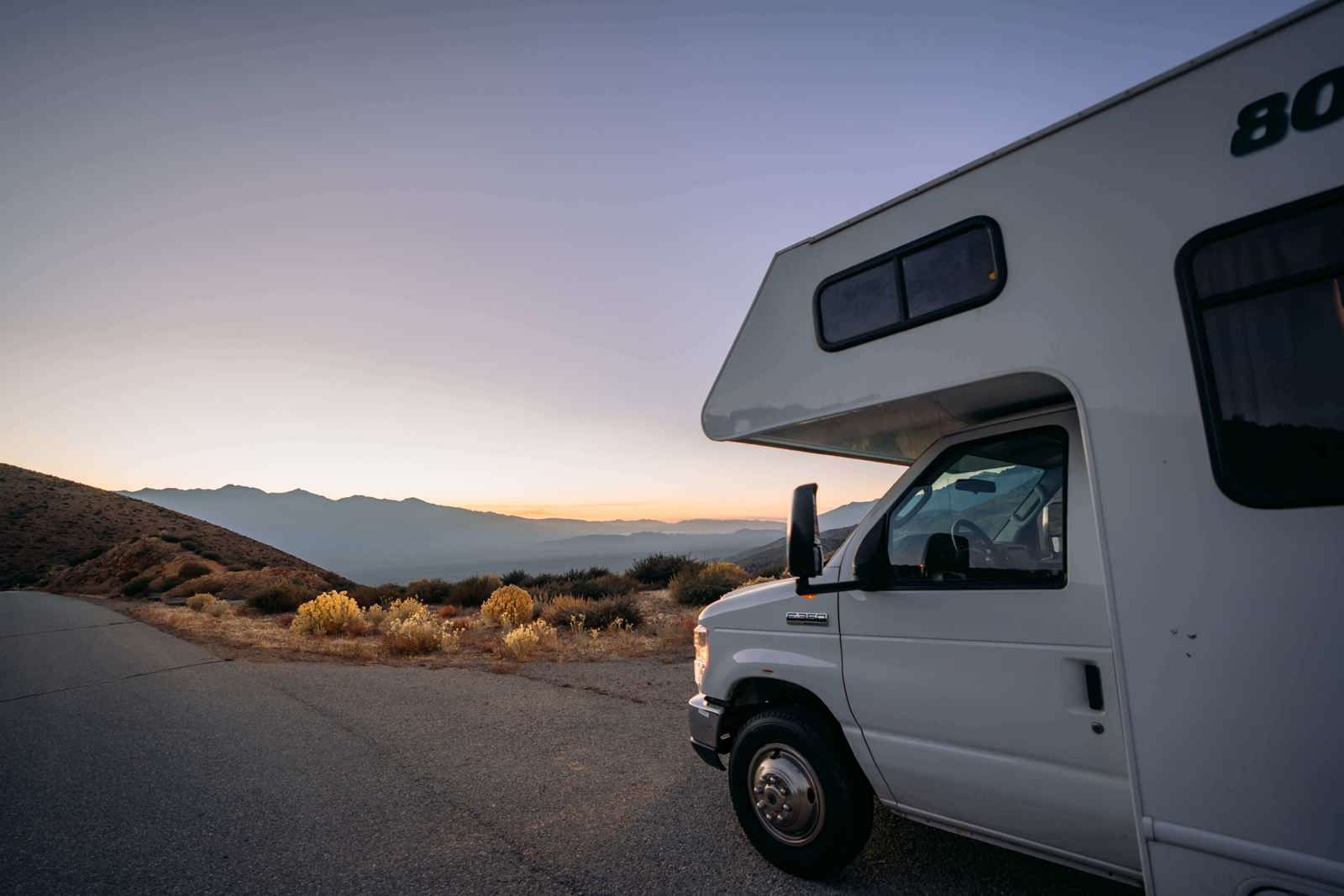
How to Get Started Digital Nomading
- RV Lifestyle

The way people work has changed dramatically in the last decade. More professionals are leaving traditional office settings behind in favor of flexibility, independence, and adventure — a movement known as digital nomading. This growing trend allows people to work remotely while traveling, often using laptops and mobile devices to stay connected wherever the road takes them.
At its core, the digital nomad lifestyle combines professional productivity with personal freedom. Whether you’re working online as a freelancer, running your own company, or employed by a business that supports remote working, the appeal lies in being able to design your own schedule and choose where in the world you want to live and work. For many, this means trading the cubicle for scenic coastlines, mountain views, or cozy RV campsites surrounded by nature.
Unlike traditional tourism, digital nomading isn’t about quick vacations — it’s about building a sustainable life removed from traditional housing norms. Remote workers today can easily find reliable internet access almost anywhere, from co-working spaces in major cities to RV campgrounds that offer Wi-Fi, power, and peaceful work environments. This shift toward location independence has opened up endless opportunities to explore new cultures, meet like-minded people, and redefine what “work-life balance” truly means.
As the desire for freedom and flexibility grows, so does the community of digital nomads. From entrepreneurs to full-time employees, more people are realizing that with a reliable internet connection and the right mindset, you don’t need to be tied to one spot to succeed. You just need a sense of adventure — and a willingness to take your career on the road.
What Is a Digital Nomad?

A digital nomad is someone who uses technology to earn a living while traveling from place to place, often for extended periods. Instead of being tied to a single office or location, digital nomads rely on laptops, Wi-Fi, and mobile tools to work remotely — whether that’s from a café in a small town, a beachside co-working space, or an RV parked beneath the stars.
What separates digital nomads from short-term travelers is lifestyle. Nomads don’t just take vacations; they build their entire lives around mobility and freedom. Their work, income, and community all move with them. Many pursue digital nomading to break free from rigid routines, explore the world, and find deeper satisfaction in balancing productivity with exploration.
The digital nomad lifestyle includes people from all walks of life — writers, marketers, developers, designers, consultants, teachers, and even small-business owners running their own company while working online. Some stay in one place for a few months at a time, while others travel around the world full-time. Regardless of profession, the key ingredient is having a reliable internet connection and a job that can be performed from virtually anywhere.
What makes RV life such a natural fit for digital nomads is its built-in mobility and comfort. Rather than hopping between airports and rentals, RV travelers can bring their workspace, home comforts, and sense of stability with them — something even the most seasoned nomads appreciate. For many, it’s the ideal way to experience location independence without sacrificing structure or security.
What Jobs Work as a Digital Nomad?

One of the most exciting aspects of digital nomading is the incredible variety of jobs that make this lifestyle possible. Thanks to technology and the rise of remote work, nearly any career that can be done from a laptop can be taken on the road. Whether you want to work for a company or build your own business, there’s a wide range of opportunities for those ready to embrace the nomadic lifestyle.
Freelance & Creative Work
Writers, designers, and marketers often thrive as digital nomads because their jobs naturally fit a remote model. From crafting blog posts to managing social media campaigns or designing websites, creative professionals can easily collaborate with clients and teams using digital tools.
Tech & IT Careers
The tech industry leads the way in remote working. Developers, software engineers, and cybersecurity experts often have flexible roles that only require a solid internet connection. Many digital nomads choose to take on short-term contracts or ongoing client projects, giving them steady income while they travel.
Education & Coaching
Teachers and tutors can work online offering language lessons, skill-based courses, or test preparation to students around the world. Similarly, wellness instructors, fitness coaches, and consultants use virtual platforms to connect with like-minded people and clients.
Entrepreneurship & E-Commerce
Many digital nomads run their own companies — from online shops and consulting firms to niche services and travel blogs. With a laptop in hand, it’s possible to manage operations, customer service, and marketing while exploring new destinations.
Customer Support & Virtual Assistance
As businesses expand globally, so does the need for 24/7 remote workers. Virtual assistants, tech support specialists, and administrative professionals are in high demand, making it easy to combine work and travel while maintaining stability.
Ultimately, the best jobs for digital nomads share three characteristics: flexible scheduling, online communication, and steady internet access. The more independence your job allows, the easier it is to integrate it into a life of location freedom.
The Appeal of Remote Work on the Road

For many professionals, remote work represents far more than a job perk — it’s a doorway to better quality of life. The ability to work remotely means no longer being limited by geography or routine. You can finish a client call while parked beside a mountain lake, check your inbox from a quiet forest, or brainstorm your next project as the sun rises over the desert.
The appeal of digital nomading lies in this balance between productivity and presence. Instead of spending hours commuting, digital nomads get to spend that time exploring new cultures, enjoying free time, and reconnecting with the world beyond screens and offices. It’s a lifestyle built on autonomy — you decide when to work, when to explore, and when to simply pause and take it all in.
For those traveling by RV, this flexibility becomes even more rewarding. Your workspace travels with you, complete with everything you need for comfort and focus. RVs provide dedicated space for setting up a laptop, organizing your gear, and making home-cooked meals after a productive day. Instead of packing and unpacking at hotels or searching for co-working spaces, RV travelers simply find their next scenic stop and get to work.
And as more remote workers join the movement, campgrounds and RV parks across the country have upgraded with high-speed Wi-Fi, co-working areas, and reliable power connections. It’s never been easier to blend life and work on the move.
How Feasible Is It for Me to Become a Digital Nomad?

The idea of traveling full-time while earning an income might sound like a dream — but for many people, it’s entirely achievable. Thanks to advances in technology, accessible internet connections, and growing acceptance of remote work, more professionals are embracing digital nomading every year.
To determine whether the digital nomad lifestyle is feasible for you, start by assessing your current job situation. Can your work be done entirely online? Are you able to meet deadlines, take calls, and collaborate from a distance? If the answer is yes, you may already have the foundation for working remotely.
If your role doesn’t currently allow full mobility, consider experimenting with part-time remote work or taking on freelance projects. Even a two-month test run can reveal what adjustments you’ll need to make — such as improving your demand for work, adjusting your schedule, or refining your budgeting habits.
Financial preparation is another key factor. While digital nomads often spend less than traditional travelers, you’ll still need to plan for fuel, food, maintenance, and campground fees. The good news? Living and working online from an RV can reduce costs tied to rent, utilities, and airfare — allowing your money to go further while you explore more.
Finally, consider your mindset. The nomadic life demands adaptability, self-discipline, and curiosity. It’s not just about visiting foreign countries or scenic landscapes; it’s about cultivating independence, connecting with local communities, and building a routine that fuels both work and well-being.
With some research, thoughtful preparation, and a sense of adventure, transitioning to a life of location independence is entirely possible — even if it starts with a short RV journey to see how the lifestyle fits.
Work Remotely, Live Freely: Why RV Travel Fits the Nomadic Life

For many digital nomads, the hardest part of working remotely isn’t the work itself — it’s finding stability while constantly on the move. That’s where RV travel changes everything. An RV gives you the best of both worlds: the freedom to explore and the comfort of having your own portable home.
Living and working online from an RV makes digital nomading more accessible, affordable, and enjoyable. You have a private workspace, your own kitchen, a cozy bed, and the ability to choose your surroundings — from mountain ranges to ocean views. This eliminates the stress of juggling hotels, airports, and unreliable housing.
The RV lifestyle also appeals to remote workers who want some degree of structure. You can set up a dedicated “mobile office” inside your vehicle, complete with Wi-Fi boosters, comfortable seating, and even a standing desk setup. Need a new view to stay inspired? Just drive to the next campground, scenic park, or quiet lakeside spot.
In addition, RVing allows you to connect more deeply with local culture and communities. Instead of feeling like a tourist, you’ll be able to spend more time in one place, allowing you to experience towns and landscapes more intimately — from chatting with fellow travelers to buying fresh produce at local markets.
Whether you’re a seasoned traveler or just starting your digital nomad journey, RV travel makes it possible to take your career out of the office, and into the outside world.
Staying Connected Anywhere You Go

A reliable connection is the heartbeat of the digital nomad lifestyle. No matter how beautiful the view is outside your window, it’s your internet access that keeps you connected to clients, coworkers, and projects. Fortunately, staying online while digital nomading in an RV has never been easier.
Most digital nomads rely on multiple connection options. A mobile hotspot or Wi-Fi booster can amplify campground or café signals, while satellite-based services like Starlink give you true coverage across remote areas — ideal for long stretches on the road. Many RV parks now advertise high-speed Wi-Fi as a standard amenity, recognizing that remote workers and travelers need consistent access for video calls and file uploads.
To maintain a reliable internet connection, it’s smart to test speeds before settling into a location. Apps like Speedtest or Fast.com can help determine whether you’ll have enough bandwidth for your daily workload. Some digital nomads even carry multiple SIM cards or mobile plans to ensure redundancy when traveling across many countries or state borders.
Beyond tech tools, it’s also important to plan your route with connectivity in mind. Areas near major highways or local communities tend to have stronger signals than deep wilderness campsites. If you plan to work remotely from national parks or rural areas, downloading necessary files in advance ensures productivity even when the signal drops.
Finally, remember that staying connected goes beyond the internet. Use social media and online groups to enrich your social experience, share travel tips, and find co-working opportunities on the road. Building a virtual community helps maintain motivation and combats the isolation that can sometimes come with the nomadic life.
With smart planning, reliable tools, and a flexible mindset, you can stay online and productive no matter how far your RV adventure takes you.
Digital Nomad Visas and Work Visas for Other Countries
As digital nomading continues to grow, more countries are recognizing the benefits of attracting remote professionals who contribute to local economies while working independently. Enter the digital nomad visa — a specialized program that allows remote workers to legally live and work remotely from foreign countries for extended periods, often six months to two years.
Unlike a standard tourist visa, a digital nomad visa is designed for people who earn their income online through a company, freelance work, or self-employment based outside the host country. These visas help clarify the legal grey area many digital nomads previously operated within, where working online while on a short-term visa could lead to complications.
Popular digital nomad visa programs now exist in dozens of countries, including Portugal, Spain, Costa Rica, Estonia, and South Korea. Each has its own requirements — such as proof of income, travel insurance, and sometimes a criminal background check. Some even allow applicants to bring family members, making long-term nomadic living more accessible to parents and couples.
For those who prefer to travel around the world, these visa options provide stability without sacrificing freedom. They give digital nomads the chance to immerse themselves in new cultures outside the U.S., learn new languages, and build deeper connections with our fellow humans— all while maintaining a steady income.
Even if your own country doesn’t yet have a similar program, it’s worth researching whether you qualify for work visas in other countries or short-term residence programs that support remote working.
While most RV travelers in the U.S. don’t need to worry about visas for domestic travel, understanding how digital nomad visas work is valuable if your next adventure takes you beyond borders. It’s a key part of building a sustainable, global nomadic lifestyle.
Planning for Location Independence — Budgeting and Travel Insurance
Becoming a digital nomad isn’t just about picking a destination — it’s about building a sustainable plan that supports long-term viability. Successful digital nomads know that maintaining location independence requires smart budgeting, reliable travel insurance, and an adaptable mindset.
Budgeting for the Nomadic Lifestyle
Every nomadic life has its own rhythm, but nearly all nomads start by mapping out a monthly budget. Typical expenses include fuel, food, RV park fees, and high-speed internet plans. Fortunately, RV travel can make digital nomading more affordable than many imagine. When you live and work remotely from an RV, you’re replacing rent and utilities with your own mobile home — one that doubles as both workspace and shelter.
To make the most of your income, start tracking what you spend in each category for at least a few weeks. Free tools like Mint or Notion can help organize finances while on the road. Consider setting aside a cushion for maintenance and unexpected expenses, and look into co-working spaces in key cities when you need a professional environment for meetings or client calls.
The Importance of Travel Insurance
Even the best-planned digital nomad lifestyle comes with unpredictability, which is why affordable travel insurance is essential. A comprehensive plan should cover medical emergencies, lost equipment, and trip interruptions — especially if your work depends on your laptop or camera gear.
Many nomads combine health insurance from their own country with global plans designed for remote workers. Companies like SafetyWing, World Nomads, and Allianz offer flexible coverage options for travelers spending long stretches around the world.
Planning Tips for Long-Term Success
-
Keep an emergency fund equal to 3–6 months of expenses.
-
Pay bills automatically online to avoid missed payments while exploring.
-
Keep backup funds accessible through multiple banking options or cards.
-
Review exchange rates before entering foreign countries to stretch your money further.
Planning ahead not only prevents financial stress but also gives you the freedom to enjoy the journey.
Balancing Work and Life on the Road
While digital nomading promises adventure, finding balance between work and exploration is key to long-term success in your remote role. Without structure, it’s easy for days to blur together — too much work and you’ll miss the beauty around you; too much play and your deadlines will catch up fast. The goal of the digital nomad lifestyle is to merge productivity with personal fulfillment, not let one eclipse the other.
Create a Routine That Works for You
Even though digital nomads can design their own schedules, establishing consistent work hours helps create stability. Some prefer early mornings for deep focus, while others work in the evenings to leave daytime open for hiking, sightseeing, or connecting with local communities. The key is finding a rhythm that supports both your goals and energy levels.
Try organizing your day around natural light and location. For instance, enjoy breakfast outdoors, work during the brightest hours, and close your laptop in time for a sunset walk or dinner under the nightsky. A steady routine can turn even a constantly changing environment into something that feels like home.
Stay Active and Engaged
Your physical and mental health are just as important as your income. Use your free time to stretch, take short hikes, and challenge your body. Many RV travelers also carry compact fitness gear or practice yoga beside their campsite. Staying active not only improves focus but also strengthens your connection to nature — one of the biggest benefits of the nomadic lifestyle.
Build a Support Network
Loneliness can sometimes creep into nomadic life, especially if you’re traveling solo. Thankfully, social media and online communities make it easy to connect with like-minded people and other remote workers. Many digital nomads attend meetups, co-working gatherings, or local events to meet friends.
Building relationships on the road makes the experience richer and more sustainable. It transforms digital nomading from a solitary pursuit into a shared journey — one filled with stories, laughter, and community.
When you balance work with wellness, and ambition with adventure, every day becomes more than just another entry on your to-do list. It becomes a reminder that your life and work can coexist beautifully — anywhere you decide to park.
Challenges of the Digital Nomad Lifestyle (and How to Overcome Them)

Like any major lifestyle shift, digital nomading comes with its share of obstacles. While the rewards of working remotely — freedom, travel, and flexibility — are undeniable, there are also practical and emotional challenges to prepare for. Recognizing these in advance makes it easier to stay grounded and resilient on the road.
1. Maintaining a Reliable Internet Connection
Even with modern tech, internet access isn’t always consistent, especially in rural areas or national parks. A weak signal can disrupt meetings or deadlines.
How to overcome it: Always carry backup connectivity options like a mobile hotspot, Wi-Fi booster, or prepaid SIM. Research RV parks or campgrounds with reliable Wi-Fi, and download key files before heading into remote zones.
2. Managing Finances and Cost of Living
Life on the road can be more affordable, but digital nomads still face expenses like gas, maintenance, and campground fees. The cost of living also varies widely depending on location.
How to overcome it: Track your spending, automate savings, and research prices before entering new areas. Build a cushion fund for emergencies and forecast your income if you are reliant on freelance and contract work.
3. Balancing Work and Free Time
When your office and home share the same space, boundaries can blur. Some digital nomads find themselves either overworking or procrastinating.
How to overcome it: Establish clear work hours and take regular breaks. Following your schedule and prioritizing deadlines will prevent performance issues from becoming a concern.
4. Combating Loneliness and Isolation
Traveling full-time can mean time away from friends, family, and familiar environments. Over time, the solitude can weigh heavily.
How to overcome it: Connect through social media, join digital nomad Facebook groups, or attend events in local communities. Many remote workers plan periodic visits “home” or invite loved ones to join part of their journey.
5. Navigating Visas and Legalities
Working abroad on a tourist visa can create complications, as digital nomads operate in a legal grey area in some places.
How to overcome it: Research digital nomad visas and work visas in advance. Countries like South Korea, Estonia, and Portugal offer programs that welcome remote workers legally for extended stays.
Start Your Journey as a Digital Nomad With Cruise America
The digital nomad lifestyle isn’t reserved for tech geniuses or full-time travelers — it’s a growing movement of people who simply want more freedom, flexibility, and fulfillment in how they live and work.
So why not you? Your office view could be a mountain range, a quiet desert, or the coastline at sunset. Start planning your journey today and discover how an RV can turn your digital nomad dreams into an unforgettable adventure. Book your RV with Cruise America.





